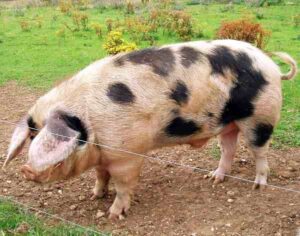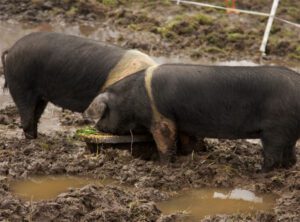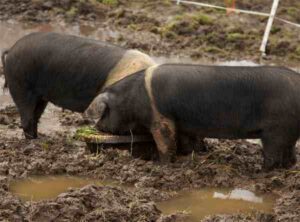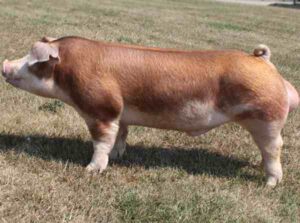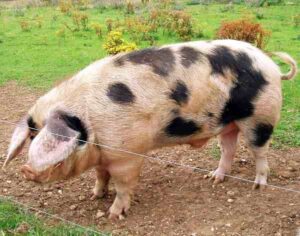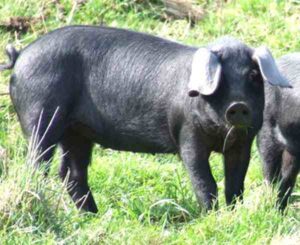The Choctaw pig is a critically rare breed of domestic pig historically used by Native Americans.
Currently total population of the breed has reduced to some hundred animals only. And most of the present population are in the Choctaw Nation of Oklahoma.
The Choctaw people and their livestock migrated from the Deep South to Oklahoma Territory in the early nineteenth century. The breed was descended from the livestock brought to the Americas by Spaniards from the 16th century onwards.
The breed was not only used by the Native Americans, but also by the European settlers and a succession of other peoples in the Southeastern United States for over three hundred years.
The American Livestock Breeds Conservancy calls the Choctaw Hog’s status “critically rare” and says it “is a high conservation priority. Read some more information about the breed below.
Choctaw Pig Characteristics
The Choctaw pig is relatively a small sized animal. It has two distinctive characteristics, which are the toes and the fleshy wattles.
It has toes that are typically fused forming a single hoof like that of a mule. And many animals have fleshy wattles on each side of their necks.
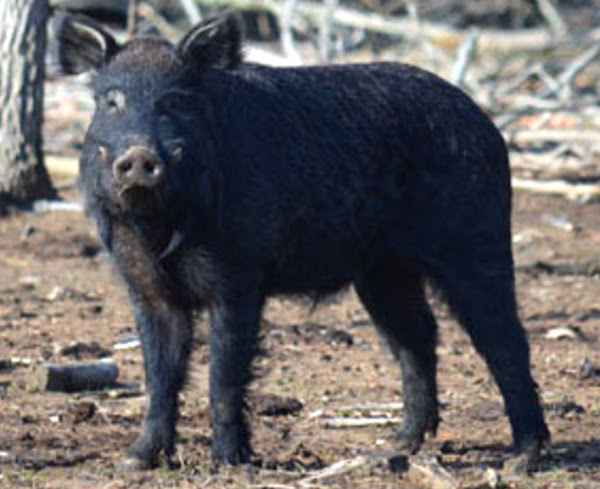
These animals are mainly black in color, occasionally with white markings. They have erect to slightly drooping ears.
Average live body weight of the mature boars is around 110-136 kg. And the mature sows on average weight around 68-90 kg. Photo from The Livestock Conservancy and info from Wikipedia.
Special Notes
The Choctaw pig is an active and very hardy breed. It is well suited for extensive pig farming system and do very well in free range.
It usually require little care and is actually able to forage for their own food. Their foods on the pasture include acorns, plants, roots, vegetables, berries and whatever else they can find.
They can sometimes be aggressive, but can become very tame if kept in confinement. However, review full breed profile of the Choctaw pig in the following chart.
| Breed Name | Choctaw | |
| Other Name | None | |
| Special Notes | Very hardy, active, well suited for extensive system, good for free range, require little care, good foragers, can be aggressive but become very tame if kept in confinement | |
| Breed Size | Small | |
| Boars | 110-136 kg | |
| Sows | 68-90 kg | |
| Climate Tolerance | Native climates | |
| Color | Mainly black, but occasionally with white markings | |
| Rarity | Critically rare | |
| Country/Place of Origin | United States |

